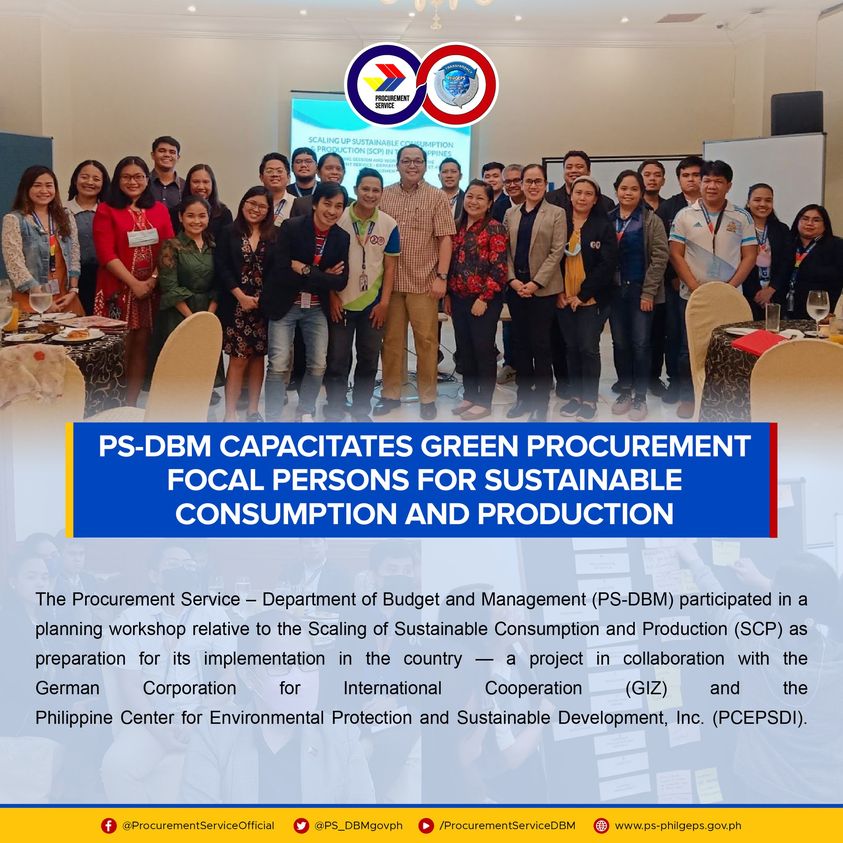
The Procurement Service – Department of Budget and Management (PS-DBM) participated in a planning workshop relative to the Scaling of Sustainable Consumption and Production (SCP) as preparation for its implementation in the country — a project in collaboration with the German Corporation for International Cooperation (GIZ) and the Philippine Center for Environmental Protection and Sustainable Development, Inc. (PCEPSDI).
With the attendance of PS-DBM officials and the agency’s Green Public Procurement (GPP) focal persons, led by Executive Director Atty. Dennis Santiago, the planning session held on February 10, 2023 was organized to finalize the list of Common-use Supplies and Equipment (CSE) in which green specifications have to be incorporated. By setting the definite number of products and/or product groups for its GPP program, PS-DBM enables the continuous development of its green criteria and assessment of market readiness.
Apart from evaluating the proposed CSE shortlist, the capacity needs of PS-DBM and its focal persons for GPP were identified. A general design for the capacity-building training sessions was also developed through process mapping and a needs-based assessment. The event objectives were further elaborated through actual workshop processes and accomplishment of expected outputs.
The engagement also gauged how PS-DBM’s implementation of its own GPP program complements the trajectory of the Government Procurement Policy Board and that of other government agencies in the GPP Roadmap timeline which began in 2017.
Mandated to operate a centralized procurement of CSE for the whole of government, PS-DBM’s role in greening the supply chain is vital. Provided with technical support and advisory services, PS-DBM hopes to contribute to the project’s goals that include the reduction of greenhouse gas emissions and the development of green markets and jobs for climate-friendly and less polluting services and products, among others.
Ultimately, the Scaling SCP Project is anchored on an international climate initiative for a Low-carbon Pathway in Southeast Asia — involving the support and participation of the Philippines, Indonesia, Malaysia, and Thailand to increase awareness and capacities in developing and strengthening sustainability information policies and tools.
